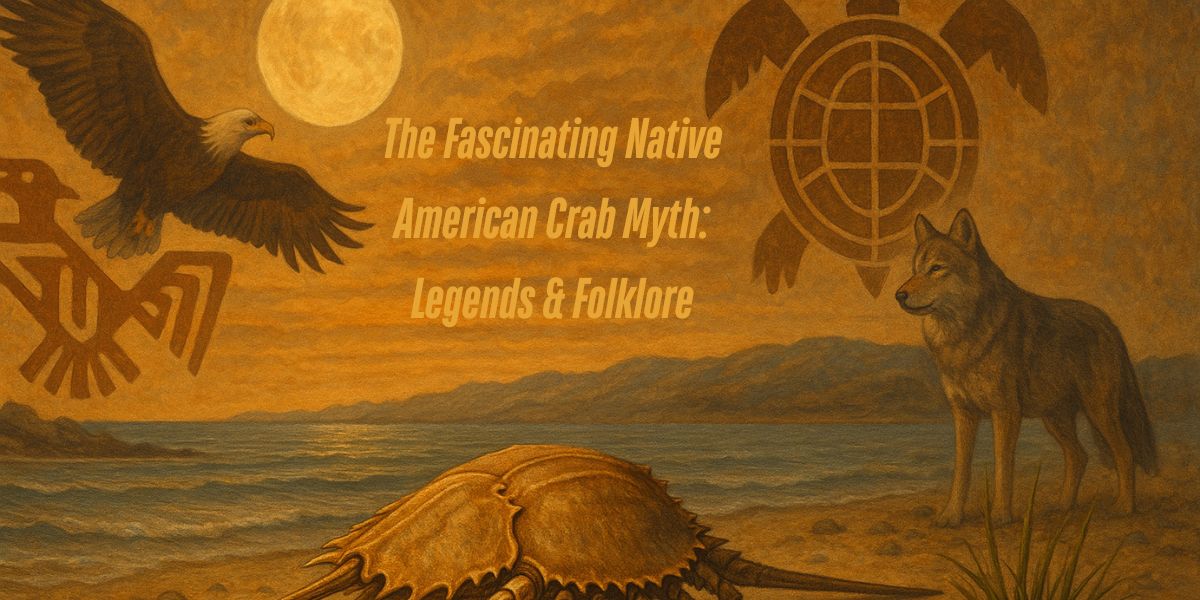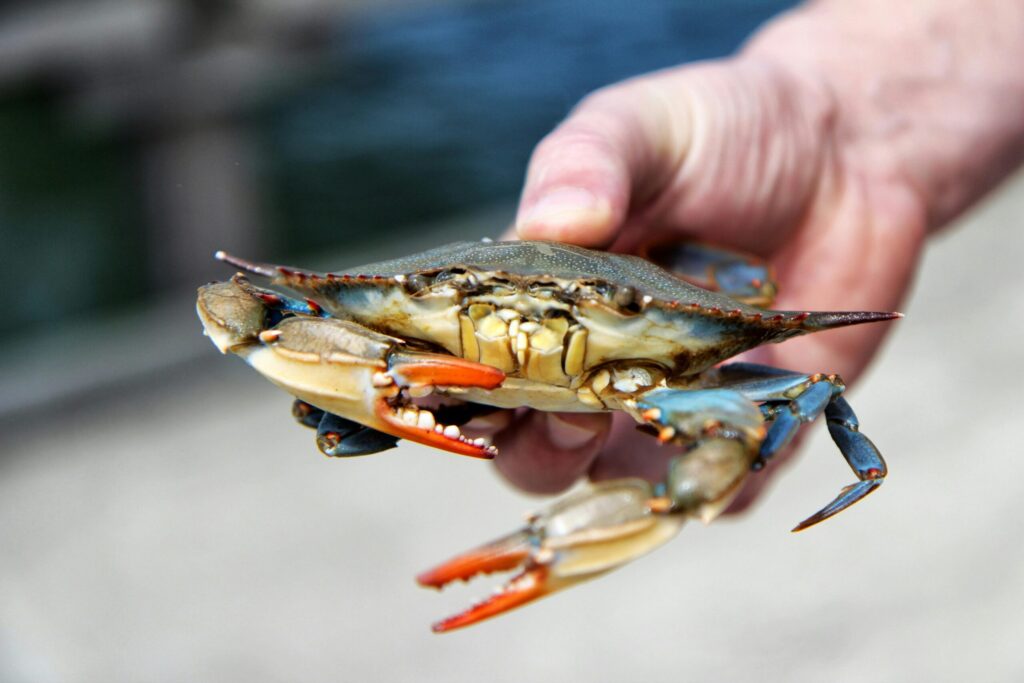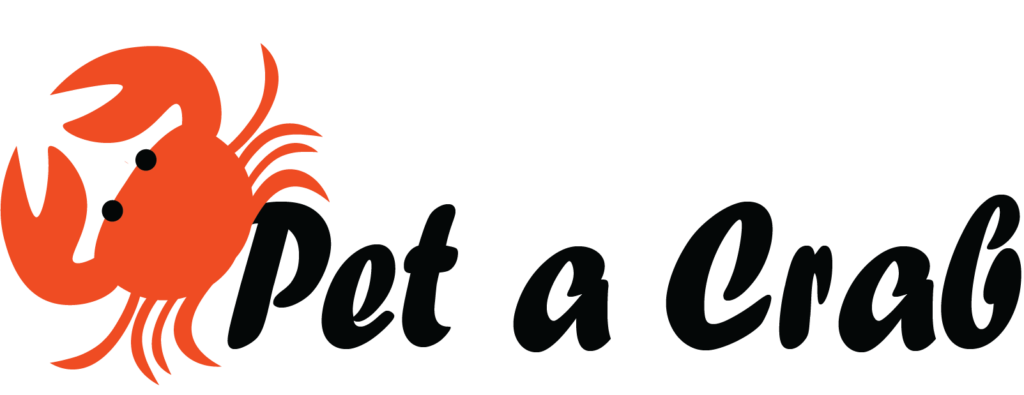The Native American crab myth is a smaller but significant portion of Native tradition, resonating with wider cultural motifs of adaptation, transformation, and harmony with nature. While animals venerated as the eagle, turtle, and wolf dominate Native American mythology, the crab also finds its place in some traditions.

In this article, I will discuss the symbolic meanings of crabs and their equivalents in other cultures. Also, their appearance in astrological mythology and mythical narratives.
The Significance of Animals in Native American Folklore
In Native American culture, animals are regarded as spiritual guides, imparting wisdom, protection, and guidance. The wolf, turtle, and eagle are featured frequently in folklore. Each symbolizes significant virtues such as vision, wisdom, and loyalty.
The crab, especially with coastal peoples, also has special significance. As a creature of land and sea, the crab represents adaptability and tenacity. Its protective hard shell signifies protection, and its sideways motion welcomes confronting challenges in alternative modes.
The Native American Crab Myth: Exploring Ancient Tales and Symbolism
For coastal peoples like the Chumash and Pomo in Native American folklore, the crab is a symbol of adaptability, change, and survival. An infamous Chumash tribe myth has the crab in the role of protection. In the story, a crab saves a small girl from a sea monster and teaches her the importance of courage, wisdom, and intelligence in times of difficulty. The ability of the crab to grow out of its shell is a symbol of rebirth and development.

- Key Themes: Safety, courage, strength, and transformation.
- Oral Tradition: The myths were passed down orally, and every tribe reinterpreted the story to suit its culture, typically emphasizing lessons for life connected with nature’s rhythms.
- Cultural Significance: The stories helped maintain cultural knowledge, shaping a deep religious connection with the natural world.
What Does a Native American Crab Symbolize?
In Native American mythology, the crab symbolizes profound lessons that have to do with the interconnectedness of nature and all living things. Since they inhabit both land and sea, crabs symbolize change, resilience, and adaptability, pillars of indigenous thought.
- Adaptability & Resilience: The crab’s sideways motion symbolizes innovative thinking and perseverance.
- Water & Emotional Depth: Since crabs are aquatic creatures, they are also linked to water, representing emotional depth, vitality, and balance.
- Protection & Strength: The strong exoskeleton of the crab symbolizes self-protection, tenacity, and survival.
- Transformation & Rebirth: As they molt, crabs cast off their shells, symbolizing rebirth, renewal, and embracing change.
Cancer the Crab Myth: Zodiac Sign Association & Native American Symbolism
Crabs also hold celestial importance in cultures, most notably in astrology as the Crab of Cancer. While the Native American cultures all had astrological systems based upon natural cycles, some might have identified the crab with lunar cycles and water principles.
- Cancer in Astrology: Ruled by the Moon, symbolizing inner depth, intuition, and fluidity. It is sensitive to the rise and fall of emotions, like water.
- Native American Symbolism: While crabs are not so much named as such in Native American astrology, tribes regard the moon and water as sacred forces that govern emotions, tides, and spiritual power.
- Comparing Myths: In Greek mythology, the giant crab Karkinos assists the Hydra in fighting Hercules.
- Common Themes: The Native American faiths are appropriate for Cancer’s themes of transformation, cycles, and emotional complexity, with a focus on spiritual growth and the fluidity of life.
Giant Crab Myth: Are There Native American Legends About Giant Crabs?
While giant crabs are more common in Asian and Polynesian mythologies, Native American seacoast tribes also have legends of giant marine animals, such as crabs. These myths present creatures as symbols of power and wisdom, with the close association between tribes and the sea.
- Japanese Heikegani Crab Legend: Crabs are believed to have the souls of deceased samurai.
- Polynesian Giant Crabs: Believed to be the protectors of hidden treasures.
- European & Caribbean Myths: Sea monsters are guardians of sacred underwater kingdoms.
For more on marine creatures, check out:
What is The Crab Monster Folklore?
Crab monsters have appeared in numerous myths throughout the world, typically with supernatural or guardian-like traits. In Greek mythology, Karkinos is a giant crab who fought Hercules and was later immortalized as a constellation.
Similarly, in a Japanese myth, Tamatori-hime encounters a magic crab on a quest for a missing pearl. In the Filipino and Caribbean traditions, crabs are explained as guardians of gateway portals into the underworld and symbols of power and protection.
In Native American mythology, sea creatures like crabs are likely to represent spirit animals, guardians of sacred waters, or symbols of survival and adaptation, the deeper significance of which relates nature to the spiritual world.
What is the Legendary Crab in Mythology?
Crabs feature in different world mythologies, and each has a different meaning. Potential Native American crab myths correspond to other worldwide myths, including:

- Hindu Mythology: Demon King Ravana’s connection with cosmic powers.
- Chinese & Korean Crab Myths: Crabs as guardians of sacred sites.
- European Folklore: Crabs as agents of change and transformation.
Native American crab myths, though perhaps less documented, find in their oral histories a celebration of water animals’ wisdom, adaptability, and divine role.
What is the Mythology of the Horseshoe Crab?
Horseshoe crabs are extremely ancient sea animals that lived over 450 million years ago. Their role in Native American religion is not very clearly defined, but horseshoe crabs are sacred animals in all religions:
- Asian Cultures: Sacred, symbolizing longevity and wisdom.
- Marine Mythology: Often associated with survival and rebirth.
- Indigenous Environmental Wisdom: Horseshoe crabs are widely valued among many Native American communities for their role in oceanic ecosystems.
For more information on horseshoe crabs, see this related blog: Horseshoe Crab Blood.
Final Thoughts
The Native American crab myth has many lessons, such as respect for nature and harmonious living with the environment. It emphasizes personal development through transformation, such as crabs molting out of their shells, and emphasizes survival and adaptability. These timeless tales provide wisdom about adaptability, regeneration, and living in harmony with nature.


